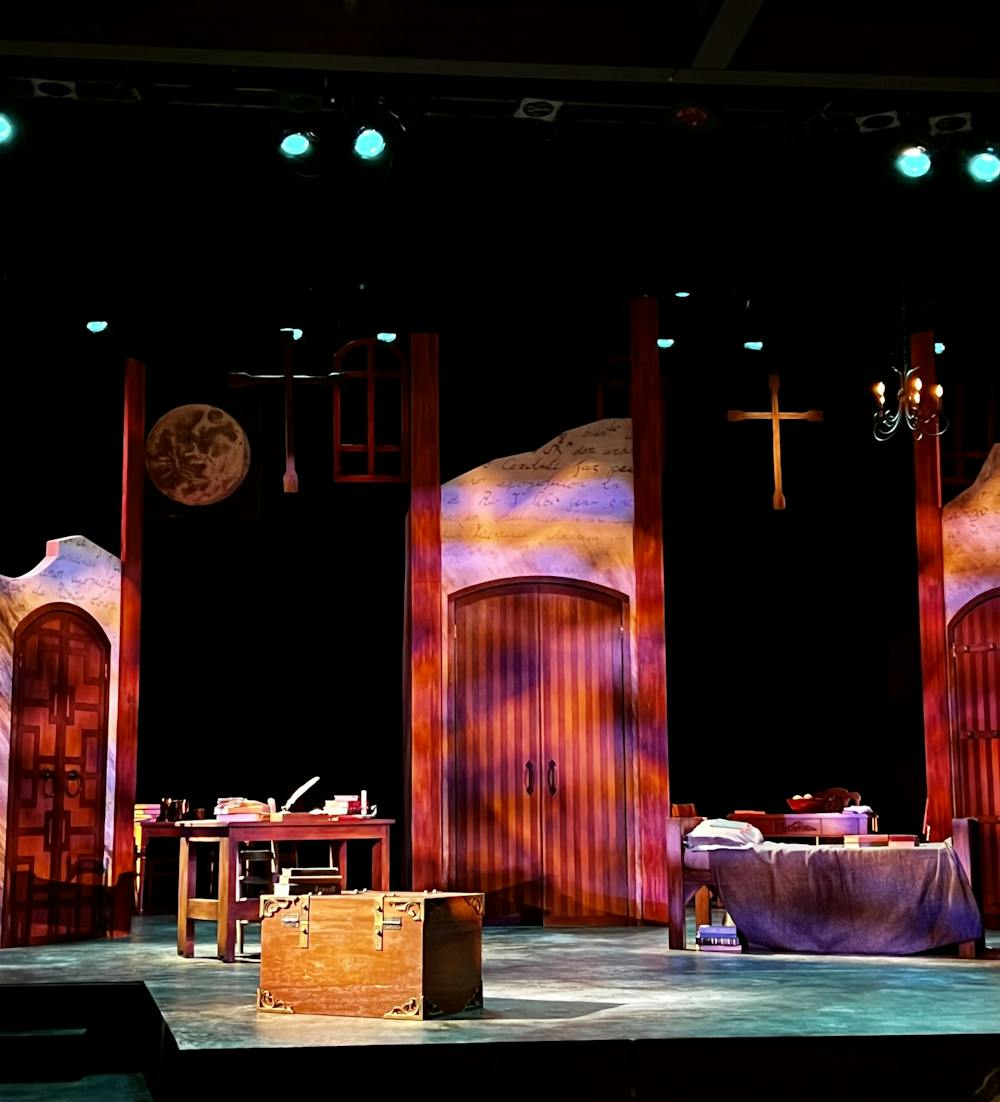American University’s Department of Performing Arts presented the play, “The Sins of Sor Juana,” written by Karen Zacarías and directed by Aaron Posner on Feb. 10- 12. Thought-provoking and emotional, the play’s production made for a powerful weekend.
The play begins in 1669 when 21-year-old Sor Juana Inés de la Cruz (Bekah Zornosa) enters the Convent of the Order of St. Jerome in Mexico City, New Spain for the safety of her life after her writings are published. As a female poet, critical thinker and public challenger of the status quo, Juana faces judgment and restrictions by the people in her life. Namely, the Viceroy of New Spain (Patrick Donoughe) does not like Juana’s feminist influence on his wife, the Vicereine (Arielle Moore). The Viceroy decides to hire a thief, Silvio (José Pablo Payró), to seduce her away from marrying into the royal family. During this trial, Juana learns lessons of humility, heartbreak and survival.
Juana is considered a contemporary feminist icon in Mexico where today she appears on currency, but in the United States, very few have ever heard of her story and accomplishments. The DPA made the intentional choice to challenge this by selecting this play. They also expanded their reach by playing traditional Mexican music in the background/during intermission as a nod to Sor Juana’s work as a composer.
The theatrical construct of Zacarías’ adaptation does an effective job of establishing the continuity of ideas and controversy from the past into the present. Juana questions religion and faith against science, and other characters such as the Vicereine show how women can feel trapped in the roles that society expects them to fit.
The driving forces behind the cast’s success were nuance, cohesiveness and trust. Through physicality and sometimes even comedic deliverance – like when Silvio dresses in Juana’s skirt and corset to prove he is different from other men – each actor did a beautiful job of communicating the inequities faced because of social class, wealth and gender. There were also fleeting lines of dark satire to show the ridiculousness of Juana’s social reality.
Moreover, the scenic design and costume design, lead by Grisele Gonzalez and Sydney Moore respectively, was an extension of complex messaging with certain colors and fabrics: dark and rich for royalty yet plain for the nuns and varied lighting revealed insights into each character and mood.
At three separate points in the play, characters from Juana’s past appear in her dreams acting possibly as her own conscience. However, the intention is unclear — and that was done so as a deliberate choice. In a post-performance Q&A, Posner said that the ending is supposed to be clear enough to tie up the show’s loose ends, but ultimately up for audience interpretation.
Overall, “The Sins of Sor Juana” cast and script did an honest and powerful job of representing the strength in words, liberation, romance, feminist ideology and the regrets of rash decisions through the lens of Juana during the 17th century. After the house lights rose and the standing ovation finally died down, the audience was left considering the message and meaning of Juana’s tale, along with the empowering feeling that it was up to them to decide the answer.





